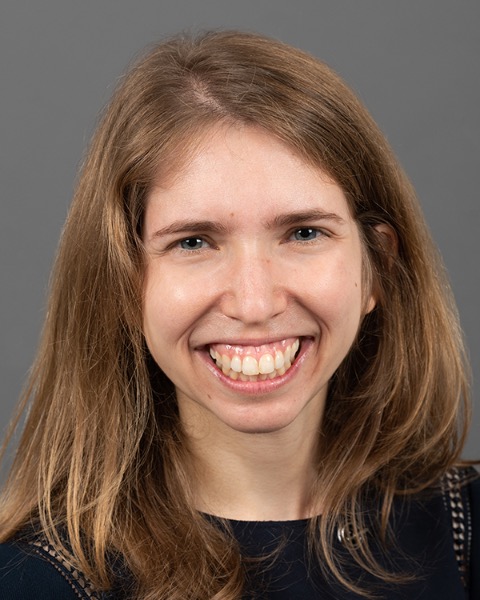Medical Education: Fellow
Medical Education 11: Fellow 2
558 - Pediatric Subspecialty Virtual and In-Person Interview Experiences: Perspectives from Fellows and Program Directors
Sunday, April 30, 2023
3:30 PM - 6:00 PM ET
Poster Number: 558
Publication Number: 558.325
Publication Number: 558.325
Laura Chiel, Boston Children's Hospital, Boston, MA, United States; Hayley A. Gans, Stanford University School of Medicine, Palo Alto, CA, United States; Melissa L. Bales, Riley Hospital for Children at Indiana University Health, Indianapolis, IN, United States; Sarah King, Children’s Mercy Kansas City, Kansas City, MO, United States; Katherine Mason, The Warren Alpert Medical School of Brown University, Barrington, RI, United States; Alan Schwartz, University of Illinois at Chicago, Chicago, IL, United States; jennifer C.. Kesselheim, Boston Children's Hospital, Boston, MA, United States; Debra Boyer, Nationwide Children's Hospital, Columbus, OH, United States

Laura Chiel, MD (she/her/hers)
Attending
Boston Children's Hospital
Boston Children's Hospital
Boston, Massachusetts, United States
Presenting Author(s)
Background: Pediatric fellowship programs have conducted virtual interviews (VI) for 3 recruitment cycles. As COVID-19 restrictions ease, data on interview experiences is needed to inform national recommendations for future cycles.
Objective: We aimed to evaluate: (1) VI and in-person interview (IPI) experiences as reported by fellows and fellowship program directors (FPDs), and (2) how interview format influences fellows’ and FPDs’ abilities to form accurate impressions of one another during the recruitment process.
Design/Methods: We conducted a national survey of FPDs, and fellows who experienced either IPI or VI in 2019 and 2020, respectively. 5-point Likert scales were used. Data was analyzed using Chi- Squared and Fisher’s Exact tests.
Results: Ninety-one FPDs and 134 fellows (63 experiencing IPI and 71 VI), from all 15 subspecialities responded. While FPDs reported increased applications (57, 63%) and interviews (50, 55%) for VI, fellows reported no significant difference in number of applications (P=0.43) or interviews (P=0.12) across formats. Forty-nine (71%) fellows experiencing VI did not adjust the geographic distribution of their applications based on virtual format. Seven (10%) fellows experiencing VI were dissatisfied with the interview experience compared with none of those experiencing IPI (P=0.01) but the majority of both groups were satisfied with the process. There was a divergence of opinion on the ability to gain insight into program culture in the VI group, with 27 (38%) expressing agreement and 33 (47%) disagreement. On arrival to fellowship, fellows’ expectations after interviewing did not significantly differ compared to actual experiences for programs (P=0.41), institution (0.07), or city (P=0.12) regardless of format. Similarly, 81% of FPDs’ impression of candidates from the interview and on arrival was aligned for both formats. FPDs expressed preference for future interview cycles as follows: VI (31, 34%), IPI (21, 23%), hybrid (26, 29%), and other (13, 14%). When asked if they would have preferred IPI, fellows who experienced VI were divided: 36 (52%) preferred IPI, 18 (26%) did not prefer IPI, and 15 (22%) were unsure.
Conclusion(s): Fellows and FPDs formed accurate impressions of programs and candidates, respectively regardless of participation in VI or IPI, which supports the ongoing consideration of VI integration in pediatric subspecialty recruitment. The incongruence between VIs resulting in accurate impressions and FPDs' and fellows’ ambivalence for preferring VIs warrants further investigation.
